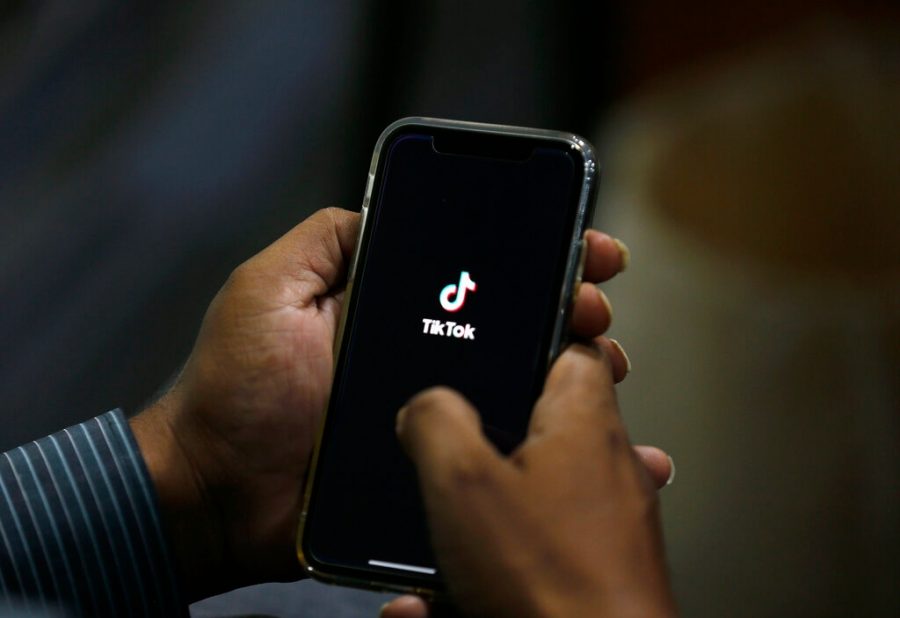How COVID-19 and internet addiction intertwine
The COVID-19 pandemic has exacerbated our collective addiction to the internet.
AP Photo/Anjum Naveed
TikTok is one of the Apps adding to the surge of addictions to social media and the internet
One minute, I’m checking Wikipedia to see where a random actor went to college and then, before I know it, I’m three hours in and am watching a bizarre YouTube video of someone silently slurping noodles, or counting to 100,000.
To go down an internet rabbit hole is a universal experience. From time to time—or, let’s be honest, a lot of the time—online distractions enthrall all of us.
Exploring the internet is often sedative, sometimes even numbing. Consider your reaction to a supposedly funny meme or post once you’ve been scrolling through social media for a while. It’s usually more of a subdued “ha” than a wholehearted laugh, isn’t it?
Because of this tranquilizing repetition, the internet can be addictive. A societal reckoning with internet addiction must ultimately take place for substantial, effective changes to occur. We as individuals ought to be cognizant of and try to limit our personal internet addictions, though, particularly in light of COVID-19.
Websites and apps are designed to draw us in, to siphon as much of our attention as possible. In a 2018 BBC News segment, former Mozilla and Jawbone employee Aza Raskin explained how website and app features like infinite scroll, which allows users to continuously swipe through content without clicking, are designed to be addictive.
“Behind every screen on your phone, there are generally a thousand engineers that have worked on this thing to try to make it maximally addicting,” said Raskin.
Like flies to a lamp, we are drawn to websites and apps because of their addictive nature.
Even during the best of times, internet addiction represents a major social ill. It can lead to or significantly exacerbate mental health issues like anxiety, depression, and social isolation. And numerous studies, including ones compiled by PubMed Central, have linked excessive internet use to serious physical health problems, including cardiometabolic disorders, obesity, and diabetes.
Estimates vary, but up to 8% of Americans may have a severe internet addiction disorder, while likely millions more deal with less severe dependency.
The onset of the COVID-19 pandemic severely worsened this internet addiction crisis.
A June article in PubMed Central about COVID-19 and behavioral addiction found that, between March and June, rates of addiction to social media, online pornography, and video games increased nationwide. Spending more time isolated and indoors has led many of us to glue our eyes to screens more than ever.
For most people, including healthy teenagers, this summer proved far easier to handle than the spring. As restrictions on businesses and social gatherings lessened in Illinois and other states, they were able to get outside and away from screens more often.
With summer now ending, though, most outside activities will soon no longer be possible as temperatures drop. Taking into account the high likelihood that the pandemic will worsen and the reality of colder weather forcing us to stay inside more, it seems near-certain that rates of internet addiction again rise in the coming months.
As individuals, we can do little to change the addictive nature of apps and websites that underlies internet addiction. A societal reckoning with the internet addictiveness must ultimately occur, but it is not an immediate option right now.
To get through the upcoming fall and winter, we must all try to be proactive about acknowledging when internet use makes our lives harder and do what is reasonable to avoid dependent behavior. There are multiple concrete steps one can take to accomplish this objective, including setting time limits on internet use, developing new real-world hobbies, and avoiding screens before bed.
I recommend grabbing a book whenever you get the urge to go on the internet. Over the past few months, I have made a conscious effort to combat my internet addiction by reading instead of scrolling through social media or watching YouTube videos. While I still go on the internet far more than I should, regular reading has helped me cut down on these addictive behaviors.
Now, more reading or any other such behavioral changes cannot be forced on anyone—they require personal motivation to complete. Where should this motivation come from?
It honestly depends on the individual. I believe, though, that the best approach may be to view the coming months as an opportunity. Rather than succumb to addictive tendencies, we can redefine our relationship with the internet.







































